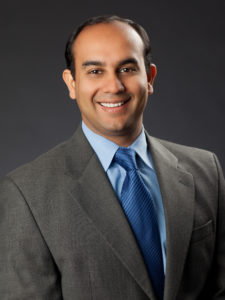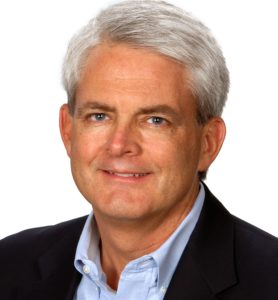Leaders working in property/casualty insurance and reinsurance agree that innovation is a business imperative for their firms, but each define the term slightly differently, and they say metrics to measure innovation success are also unclear.
Executive Summary
During a Virtual Roundtable hosted by Carrier Management in late October, four innovation experts delved into questions about the industry’s overall track record on disruptive and incremental innovation efforts, the ROI of innovation for individual firms, and also provided their takes on exactly what innovation means to them.Watch the entire Virtual Roundtable—”Is Insurance Innovation Overrated?“—on the Carrier Management channel of InsuranceJournal.TV.
During a Virtual Roundtable hosted by Carrier Management in late October, four innovation experts delved into questions about the industry’s overall track record on disruptive and incremental innovation efforts, the ROI of innovation for individual firms, and also provided their takes on exactly what innovation means to them.
Asha Vellaikal, managing director and global head of Digital Labs for Marsh, focused on the result of innovation to define it. To Vellaikal, innovation results in “significant positive change.” Under that broad definition, innovation can be incremental—for example, improving an existing workflow. Or it can be disruptive change, such as introducing a whole new product category.
In either case, “it is important to define up front what is that significant positive change. It has to be done in clearly measurable KPIs—and specific KPIs that will be contextual to that specific innovation,” she said.
Jeffrey Bohn, chief research and innovation officer for Swiss Re Institute, also applies a broad definition that encompasses “either an incremental or a disruptive change to a business model, a product, a service, or the creation of a new business model, a new product, a new service.”
“Many innovations inside large incumbent organizations tend to be incremental, but the innovations that people remember are the ones that are very disruptive or new,” Bohn observed. “That’s a tension that I find in this space quite often,” he said, setting the stage for a later Roundtable discussion of how carriers and reinsurers need to think about funding both incremental changes and headline-grabbing breakthroughs. (Related article: “Betting on Breakthrough Innovation: Shoot for the Moon“)
Customer needs factor heavily into the definition Nationwide Chief Innovation and Digital Officer Chetan Kandhari endorses. “For me, it’s simply the creation of something new ‘parentheses products, services or a change in process, close parentheses’ that generates value to society. That’s the key point—generating value,” he said.
“How do we do that? We have to do that knowing what the customer wants to do. And so, there’s a lot of discussion around [the questions], ‘Do you start with what the customer wants? Do you start with technology? Do you do human-centered innovation? Do you do technology-centered innovation? Where do you start?’ I fundamentally believe you have to look at what will create value for the customer and what job they need to get done,” Kandhari stressed. (Related article: “Insurance Industry Ripe for Human-Centered Innovation”)
For Phil Edmundson, the chief executive officer of Corvus Insurance, innovation means using “new data to predict and prevent commercial insurance claims.” That is essentially the mission of the InsurTech that Edmundson leads. Corvus offers products such as Smart Cyber Insurance and Smart Cargo+Cyber Insurance, underwritten by leveraging data like IT infrastructures of cyber clients and temperature sensors for shipments of goods. (Related article: “Smart Commercial Insurance: New Data Sources Fuel New Underwriting Era“)
According to Edmundson, the Corvus playbook focuses its data-centric innovations targeting four sets of stakeholders: policyholders, commercial insurance brokers, the Corvus underwriting team and risk capital partners. “We go to market as a managing general underwriter, and we need to produce better outcomes for our risk capital investors,” he said, referring to carriers putting their capital up against the risks evaluated by the MGU. “Using technology and using data can bring a win for everybody and end up with the conclusion of our mission, which is to make the world a safer place,” he said.
How are these innovators—and the industry generally—doing in quests to bring significant positive change, reduce risk, and deliver societal value with new products, services and business models leveraging new sources of data and technologies?
During the Virtual Roundtable, conceived by Guest Editor David Bradford, principal of Iosis Consulting, the four panelists went on to field questions from Moderator Mike Fitzgerald, principal analyst for insurance at CB Insights, about:
- Potential metrics for innovation initiatives within P/C insurance and reinsurance organizations.
- The roles of InsurTech startups in carrier and broker innovation.
- The costs of failing to innovate.
Finally, they each provided takeaway advice on what insurers can do to most effectively move innovation efforts forward.
View the entire roundtable—”Is Insurance Innovation Overrated?“—below or on the Carrier Management channel of InsuranceJournal.TV. Read about the panel, the moderator and the guest editor below the video.
Meet the Panel
Introducing the Roundtable, Fitzgerald highlighted the deep experience of each of the panelists and their educational backgrounds, noting that they included a PhD in finance (Bohn), a PhD in electrical engineering (Vellaikal), a senior IT leader with hundreds of millions of dollars’ worth of experience implementing IT systems (Kandhari) and a serial successful entrepreneur (Edmundson).

Vellaikal is relatively new to insurance, having joined Marsh three years ago to build the broker’s Digital Labs and lead an innovation strategy to enable the next generation of insurance and risk management products. She was previously a technologist in the Bay Area, and her résumé includes work in research, system architecture, engineering management and consulting positions at companies ranging from startups to Fortune 500 corporations. A position as director of Strategy and Innovation at Orange Silicon Valley, a division of one of the world’s largest telecom companies, is just one of the innovation leadership positions that paved Vellaikal’s path to Marsh Digital Labs. At Marsh, she has pioneered initiatives including the Risk Exchange blockchain for trade credit partnering with global clients and carriers, enterprise-grade conversational AI platforms, as well as IoT pilots with InsurTech companies.
“Labs is actually part of the bigger overall innovation strategy for Marsh, and we approach innovation from two angles: One from a macro top-down view to just have a good understanding of the technology and the market advances to be able to define that realm of the possible. [The] other angle…is much more direct and tangible in the sense that we are becoming an innovation enabler for our business lines, with the ambition of using technology to help them differentiate,” Vellaikal said.

Bohn joined Swiss Re about four years ago to set up Swiss Re Institute. Prior to that, he ran an innovation lab for State Street Bank in San Francisco, serving as chief science officer and head of GX Labs at State Street Global Exchange. Before that, he established the Portfolio Analytics and Valuation Department within State Street Global Markets Japan in Tokyo. (He is fluent in Japanese.) He also previously ran the Risk and Regulatory Financial Services consulting practice at PwC Japan.
Past appointments have included head, Portfolio Analytics and Economic Capital at Standard Chartered Bank in Singapore and general manager, Financial Strategies group at Shinsei Bank in Tokyo, where he supervised implementation of best-practice risk and capital analytics. Before moving to Asia, he led Moody’s KMV’s Global Research group and MKMV’s Credit Strategies group. Starting as an academic, Bohn’s area of expertise is risk modeling, which he taught at U.C. Berkley. He is widely published in the area of credit risk.
Swiss Re Institute, Bohn said, is the central entity for all R&D at Swiss Re. Within that group, he runs a team of about 60 people focused on longer-term research. “We have lots of other incremental research teams structured along risk types—life/health, casualty and catastrophe perils,” for example, he said.

Kandhari has been at Nationwide for 15 years, mostly in technology roles tied closely with the personal lines business. His current role as leader of Nationwide’s Enterprise Innovation and Digital organization is not a tech role, but he spends time with both the technology group and business units, helping to drive innovation for them and to digitize their businesses, as well as “figuring out where we might want to put some longer-term bets as a company.” Kandhari is primarily accountable for maturing the company’s digital capabilities and expertise while creating new customer-centered digital products and services for members and partners.
Previously, as chief technology leader for P/C operations, he oversaw the development and deployment of Nationwide’s Express platform and SmartMiles, as well as integrations with strategic partners such as Amazon, Toyota and Ford. He was also responsible for Personal Lines Transformation, a seven-year, $500 million effort to upgrade legacy systems to a more current platform.
In other roles at Nationwide, he has led the Customer Data and SOA Solution Organization, creating a single customer file. Earlier in his career, Kandhari was a consultant with Diamond Technology Partners and Ernst & Young, focusing on large-scale program delivery and architecture.

Edmundson spent most of his career prior to founding Corvus Insurance working in the commercial insurance brokerage world in the U.S. and Europe, working with technology companies. Beyond software and Internet and cyber companies, he did a lot of work with life science and renewable energy companies—”anything new and different or difficult and challenging for us as insurance professionals.”
Edmundson started his brokerage career at Willis and also worked at Aon and Arthur J. Gallagher. Among other roles, he co-founded William Gallagher Associates and sold it to Arthur J. Gallagher in 2015.
He started Corvus, a venture capital-funded and tech-enabled cyber insurance MGU, four years ago. According to Edmundson, the InsurTech MGU employs 100 people in the U.S. and is currently looking at its first expansion outside of the U.S. Last year, in an article he authored for Carrier Management, Edmundson explained how his firm is using smart scans of the IT infrastructure of commercial insureds to improve cyber insurance underwriting.
Corvus was founded on the idea that the world of commercial insurance can be made smarter by finding new and unique sources of data to predict and prevent claims. The company analyzes the data with advanced techniques like machine learning and AI to drive tools and predictive models that both improve underwriting and help brokers and policyholders better understand and mitigate risk.
Meet the Moderator
Mike Fitzgerald, principal analyst, Insurance, CB Insights, moderated Carrier Management’s Virtual Roundtable—”Is Insurance Innovation Overrated?” (available on demand on the Carrier Management channel of InsuranceJournal.TV). Fitzgerald also served as the guest editor for a section of CM’s May/June 2019 magazine, titled “Innovation How-to-Guide.”

Over the course of a 40-plus-year career, Fitzgerald was himself involved in leading innovation initiatives in the insurance industry, working on both the technology and business sides of the business. The dual perspective, “at times, has really caused me to feel a bit like the Swiss diplomat who can speak many languages, seeing many sides to the same problem,” he told CM in an interview last year. “That uniquely set me up for the analyst job I stepped into 11 years ago,” he said, referring to a prior role at Celent and his current position at CB Insights, where he has been involved with researching the application of technology for business value in insurance.
Before becoming an analyst, Fitzgerald said he was able to work on many change-the-business assignments—the longest one lasting four years when he was in charge of the area that revamped the legacy automobile system at Royal & Sun Alliance in the U.S. “My innovation chops were earned working on the development of the first global online technical insurance learning platform,” another task at RS&A. Fitzgerald explained that the platform delivered claims and underwriting training—”not the soft skills but the actual assessment of risks, settlement of claims. And that was all the way back in 1999.”“We didn’t call it innovation at that time, but it definitely had many of the aspects of what we deal with in the innovation space now. It was taking a traditional model of face-to-face classroom learning and moving it to part face-to-face and part online or all online. It was a major shift for the way that people approached business and learning and technology,” he said. “A lot of what we did with that resonates with the approaches that have been formalized [in] innovation programs.”
Shorter assignments at other organizations saw Fitzgerald working on major change initiatives and introductions of brand-new products. At Zurich, for example, he was part of a redesign of their product management process, working on the technology needed to support a different method of building insurance products.
Fitzgerald joined CB Insights earlier this year and in May hosted one of the first industry webinars focused on the impact of COVID-19 on P/C insurance company innovations and digital transformations, “Doubling Down On Digital: How Insurers Are Using Tech To Build Resiliency And Reduce Expenses.” More recently, he authored the CB Insights research report, “P&C Insurance Trends To Watch: Digitization & Task Automation.” (Related article: “P/C Tech Trends to Watch: CB Insights NExTT Framework,” available on the Carrier Management website. Related videos on the CM channel of insurancejournal.tv)
Meet the Guest Editor
Serving as guest editor, David Bradford, principal of Iosis Consulting, conceived of the idea for the CM Virtual Roundtable on Innovation, recruited the panel and developed the questions. Earlier this year, he also served as guest editor for a section of CM’s May/June magazine edition focused on the theme “Future Shock: Managing Risk in a Time of Accelerating Change.”
 Bradford learned his own lessons about keeping up with rapid change during a 40-year career that started at Allstate Re in 1980. After holding executive positions at Reliance Re and Swiss Re, as well, Bradford and Tom Ruggieri, a former managing director of Marsh & McLennan, teamed up to launch Advisen—an information and media company, and one of the industry’s oldest InsurTechs—with the goal of providing an online information resource specifically for the commercial insurance industry.
Bradford learned his own lessons about keeping up with rapid change during a 40-year career that started at Allstate Re in 1980. After holding executive positions at Reliance Re and Swiss Re, as well, Bradford and Tom Ruggieri, a former managing director of Marsh & McLennan, teamed up to launch Advisen—an information and media company, and one of the industry’s oldest InsurTechs—with the goal of providing an online information resource specifically for the commercial insurance industry.
“We didn’t get it right at first,” Bradford said, noting that the pair assumed people wanted to do all their work digitally. “We envisioned an Advisen on every broker’s desktop, but that wasn’t the way brokers worked, [and] it wasn’t the way risk managers worked,” he said. Over time, Advisen “migrated to becoming largely a data company,” licensing the data separately from the Advisen.com platform.
The Advisen pioneers were ahead of the curve with another part of their vision: to create underwriting tools using natural language processing and machine learning. “We made a huge investment in that technology, which in 2000 was pretty primitive. The training involved was just beyond the capabilities that we had.” With no payoff on the investment, the idea was scrapped. (Note: In mid-November 2020, insurance technology firm Zywave announced the acquisition of Advisen.)
Leading his own consulting firm today, Bradford aids tech startups as they navigate insurance markets. His sobering past experiences—of taking fantastic ideas to market and then having them not work out—help him guide InsurTechs when they need to pivot, he said.
An early experience that prepared him for his consulting work today involved setting up an incubator for startup companies at Swiss Re North America. While at Swiss Re, Bradford formed a joint partnership with Policy Management Systems Corporation to create “a soup-to-nuts turnkey operation for launching new insurance companies. If somebody came in with a good idea, PMSC not only had the outsourced IT systems, they also had a complete outsourced backroom for a virtual insurance company,” he said. Swiss Re provided the reinsurance and had an investment division that provided capital.
In an earlier role at Swiss Re, Bradford worked with McKinsey in the early 1990s to revamp the North American operation. Recalling the huge disruption that occurred when all of senior management was let go, he said helping to re-engineer Swiss Re America was one of his best learning experiences. The team started from scratch, “thinking about the markets not from the standpoint of a going concern but how we would like to build the company,” he said.
At Iosis Consulting today, Bradford works with leading firms to provide feasibility studies, financing, outsourced back-office functions and other services to early stage insurers, MGAs and RRGs, and helps mature players develop innovations to address emerging risks and underserved markets.





















 Viewpoint: Runoff Specialists Have Evolved Into Key Strategic Partners for Insurers
Viewpoint: Runoff Specialists Have Evolved Into Key Strategic Partners for Insurers  10 Do’s and Don’ts of a Smart ORSA Report
10 Do’s and Don’ts of a Smart ORSA Report  Large Scale Cargo Ring Busted in LA, $5M Recovered
Large Scale Cargo Ring Busted in LA, $5M Recovered  AI Claim Assistant Now Taking Auto Damage Claims Calls at Travelers
AI Claim Assistant Now Taking Auto Damage Claims Calls at Travelers 














